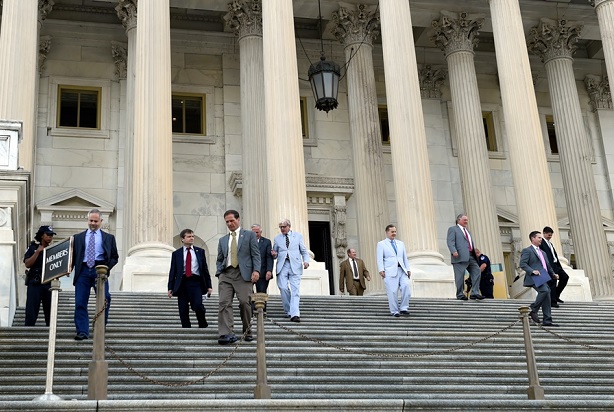 Congress. (Photo: AP)
Congress. (Photo: AP)
Representatives of the pharmacy benefit manager industry got an earful during a hearing before the House Oversight and Accountability Committee last week.
"We know that PBMs regularly engage in spread pricing, where PBMs overcharge payers and underpay pharmacies, and pocket the extra money," Chairman James Comer, R-Ky., said. "We also know that drug manufacturers pay rebates to PBMs in order to be placed in a favorable tier on a formulary, which can make it difficult for competing prescriptions — often generics or biosimilars — to get on formularies. These practices have real-world consequences, and impact constituents in all our districts."
Recommended For You
In a rare show of bipartisanship, Rep. Stephen Lynch, D-Mass., agreed but was even blunter, calling PBM business practices a scam. "It's absolutely maddening," he said, "and I think we have an area here where we can actually work together and have some bipartisanship."
A major focus of the hearing was rebate arrangements, where drugmakers pay PBMs to have their medications placed on a favorable tier of the formulary. Multiple witnesses testified that the rebate structure incentivizes PBMs to prioritize drugs with higher list prices, resulting in higher consumer costs. J.S. Scott, president and CEO of the Pharmaceutical Care Management Association, countered that PBMs retain only 6% of the drug dollar, while manufacturers retain 65%.
"Efforts to lower drug costs must start with an understanding that prices are set by drug companies," he said. "When a drug company sets its initial price, that dictates cost throughout the supply chain."
Lori Reilly, COO of PhRMA, disagreed. "While it is true our companies set the list price of the medicine, PBMs are responsible for setting terms of coverage and access and cost sharing that patients have, and their preferences do matter," she said.
Craig Burton, executive director of the Biosimilars Council, testified that PBMs frequently restrict access to low-cost generic and biosimilar medications by not including them on formularies because of financial incentives pushing them toward high-priced brands.
Multiple lawmakers said they were concerned about rampant consolidation in the PBM industry.
Related: Competition declines among PBM middlemen, analysis finds
Many PBMs now operate retail and specialty pharmacies, and the biggest PBMs are all owned by major health insurers. Three PBMs – Caremark, owned by CVS; Express Scripts, owned by Cigna; and OptumRx, owned by UnitedHealth Group — control roughly 80% of the market.
Congress is considering a number of bills to reform the PBM industry. "We need to have robust debate about this, we need to continue to have dialogue, we need to start exploring options and we need to get something done," Comer said.
© Touchpoint Markets, All Rights Reserved. Request academic re-use from www.copyright.com. All other uses, submit a request to [email protected]. For more inforrmation visit Asset & Logo Licensing.







